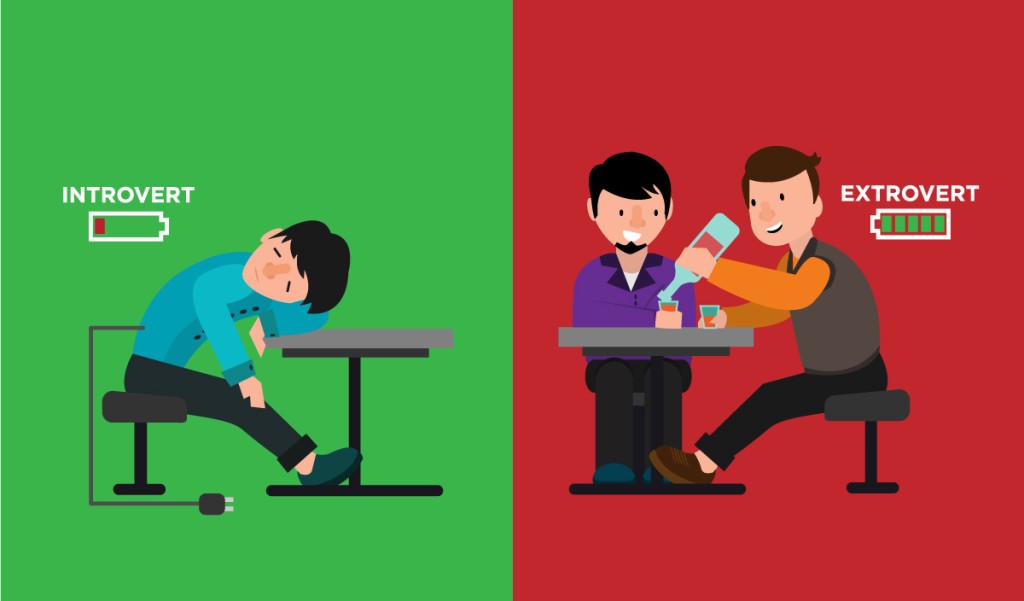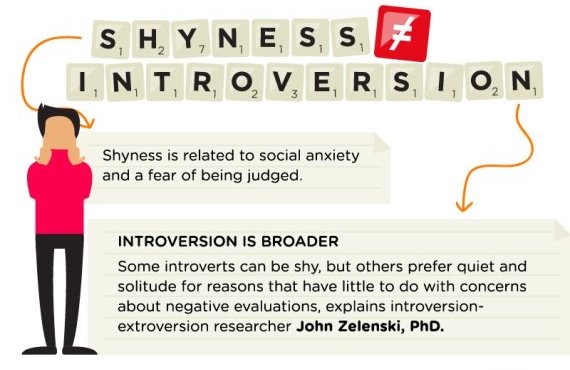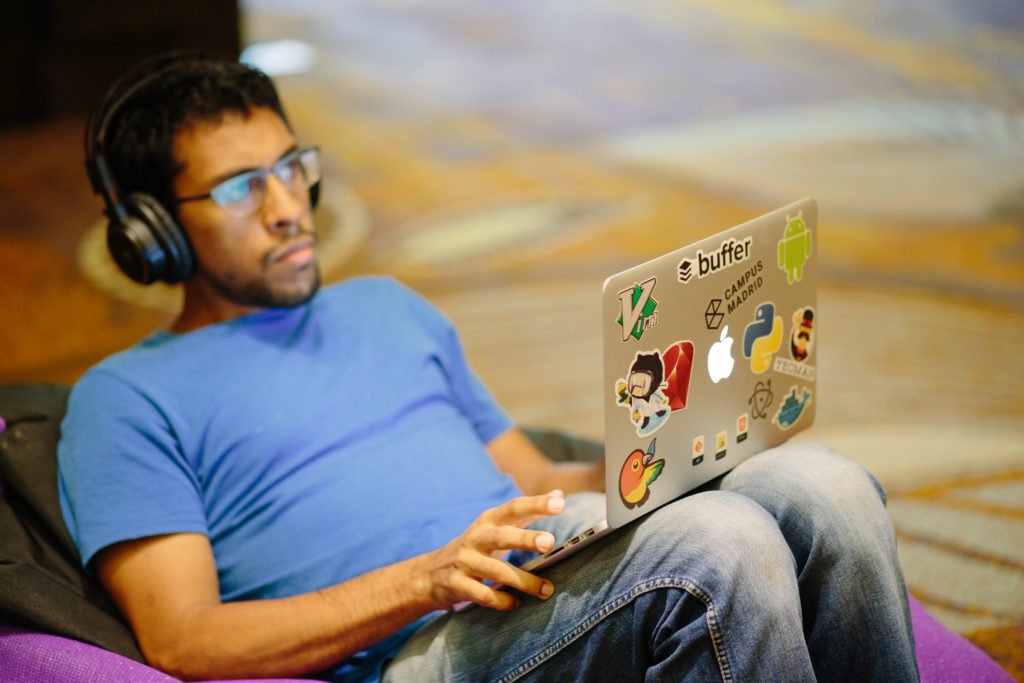I think, deep down, I always knew I was an introvert — even before I knew what an introvert was. I remember from a very young age that I would usually prefer my own company over the company of others. Not just because there was a hint of anxiety whenever any social occasions surfaced with people I didn't know well, but because being on my own meant that I could relax and be myself. I felt such joy whenever the prospect of my parents going out and me getting the house to myself came up. It wasn't that I didn't like my parents (they are great parents) but because I would be able to enjoy not having to interact with anybody for a time, and recharge. I could exist in my own peaceful little world, free of judgment.
[Source]
Today, this feeling of needing to take some time out to recharge and recuperate still hold true. The challenges are different, though. Daily adult life can present all sorts of activities and interactions that are necessary to engage in, but which also drain our metaphorical batteries. Simply going to work in an open-plan office every day would set me on a course for some much-needed downtime at the end of the day. Being in a position with some responsibility, my day was filled with meetings and other tasks with members of my team. This I was happy to do, but care had to be taken so that I didn't become too exhausted and "run on fumes" as the hours went on.
“It's important to realize that social anxiety and shyness are not inherently tied to introversion. Introversion is a built-in personality trait mostly influenced by genetics, whereas the degree of social anxiety or shyness is learned through our positive — and negative — interactions with our environment and with society.”
Tweet This
Finding Yourself on the Introversion/Extroversion Spectrum
Around a third to a half of people identify as being introverted. Therefore, it’s important to recognize the environments in which you feel the most comfortable and able to do your best work. It’s equally important to recognize the different personality types that exist within your teams if you happen to be in a leadership role.
The classic indicator of whether somebody is an introvert or extrovert is to look at how they prefer to recover energy. Introverts tend to seek out solitude and quiet, away from human interaction in order to relax and recharge. Extroverts, on the other hand, can quickly grow tired of being alone and will seek out the company of others so that they may feel comfortable and engaged.
In truth, all of us lie somewhere along the spectrum between introversion and extroversion. Some of us are at an extreme, others towards the middle (the so-called Extroverted Introvert) and anywhere in between!
It's also important to realize that social anxiety and shyness are not inherently tied to introversion. Introversion is a built-in personality trait mostly influenced by genetics, whereas the degree of social anxiety or shyness is learned through our positive — and negative — interactions with our environment and with society. The trend is that, because introverts are naturally quieter and more reserved in their communication with others, they are assumed to be shy. In reality, people all across the introvert-extrovert spectrum can exhibit socially anxious behavior — which can present quite a problem if you happen to be extroverted!
I've also heard it said before that "introverts hate people". I, for one, don't hate people. I just prefer to be around the few people that I know and love rather than groups of strangers. I favor engaging in one-on-one conversation or in very small groups over bigger groups, and I find small-talk very difficult. These are the kinds of things that give the impression that I "hate" people, but in actual fact, it's probably because a lot of the time you've caught me outside of my preferred social environment!
You Don't Have to Be Extroverted to Be a Leader
As a lead software developer at my previous place of work, being introverted meant facing a number of challenges, like leading a team and helping them to achieve objectives, as well as the environmental challenge of working in a large open-plan office. My day would be filled with interactions with other developers, with members of the senior leadership team and general chat with friends and co-workers. On top of that, we would often be pair programming for a large part of the day. As you can imagine, these activities really ate into my energy budget for the day and I found myself having to plan out my day in more detail so that I could recover some of this energy at the right time. Sometimes this meant staying late at the office when it was quieter — not a healthy activity!
However, one part of my role — to be a leader — was one that I found surprisingly rewarding. Contrary to popular belief, not only can introverts be extremely effective leaders in the workplace, but studies suggest that they can actually perform better than their extroverted counterparts. Introverts tend to be deep thinkers and try to explore all the options before acting on a decision. Because we tend to be fantastic listeners, we are more able to come up with the right solution to problems. On top of that, introverted leaders are more likely to delegate and empower other team members, which is beneficial to individuals and thus the whole team.
If you're reading this and you happen to be an extrovert who is possibly also in a position of leadership, know that the quieter of your team members may be harboring some great ideas but require the space and the right environment in order to express them. They are much more likely to respond favorably in a small group session or one-on-one than in big groups. If you're having trouble teasing ideas out of someone, try chatting with them individually to see if they start to open up.
“Around a third to a half of people identify as being introverted. Therefore, it’s important to recognize the environments in which you feel the most comfortable and able to do your best work. It’s equally important to recognize the different personality types that exist within your teams if you happen to be in a leadership role.”
Tweet This
Changing My Work Environment
These days, I work remotely for Auth0, mostly from my home office. There are many benefits to working outside of the office. As an introvert, it affords me hours of uninterrupted, focused work when I need it. I am fortunate that the culture here at Auth0 is extremely conducive to remote working. We collaborate almost exclusively using Slack, which implies asynchronous communication; I don't have to answer that message straight away if I'm up deep into a task that I want to finish. Plus, I no longer need to commute to the city, which would often take a whole two hours of my day. Two hours!
More than that, it allows me to have the solitude that I need in order to function properly as a human being. This means I have more energy for family time at the end of the day, which is especially important when you have a wife and a young child.
[Source]
There are challenges in working remotely that are not obvious until you actually start doing it. Occasionally, introverts get lonely too and mixing my working week between working from home and hot-desking (utilising desk space in an office that does not belong to any one person) tends to satisfy any need for social interaction that I may have during the day. There are a number of places I go, between local business development offices that provide free hot-desking space, to the local supermarket cafe. Even just getting out of the house and going for a walk can do wonders to restart the brain and provide a sense of structure to your day.
One of the perks of working at Auth0 is the company off-sites. Every year, the various teams meet for a week of brainstorming, activities, talks, and collaboration. Naturally, after a day of working the tendency is to all head out together for food and drink. This scenario can be quite challenging for an introvert as the days can be very intense, especially when you're just meeting team members face-to-face for the first time. Scheduling in regular intervals of free time is an absolute must for situations like these, which allows the extroverts to gather together for their downtime, and the introverts to scurry back to their hotel rooms for a much-needed breather!
Some Useful Resources
If you have read this as an introverted individual, I hope that you can relate to my experiences and I would love to hear about the kind of experience you have had as introverts in the discussion below.
I would like to leave you with some resources that I've found very useful over the years to help me understand what it means to be introverted. Hopefully, you will find some of them useful too!
- Introvert, Dear: A Community for Introverts and Highly Sensitive People. Great blog, but also check out their podcast
- Quiet Revolution: Website and blog of Susan Cain, author of the "Quiet" book. Also, check out her TED talk on the same topic
- The Introverted Leader: a great book by Jennifer B. Kahnweiler on using your introversion as a source of strength in the workplace, and how to help build a more introvert-friendly environment at work
About Auth0
Auth0 by Okta takes a modern approach to customer identity and enables organizations to provide secure access to any application, for any user. Auth0 is a highly customizable platform that is as simple as development teams want, and as flexible as they need. Safeguarding billions of login transactions each month, Auth0 delivers convenience, privacy, and security so customers can focus on innovation. For more information, visit https://auth0.com.
About the author

Steve Hobbs
Developer Experience Engineer



